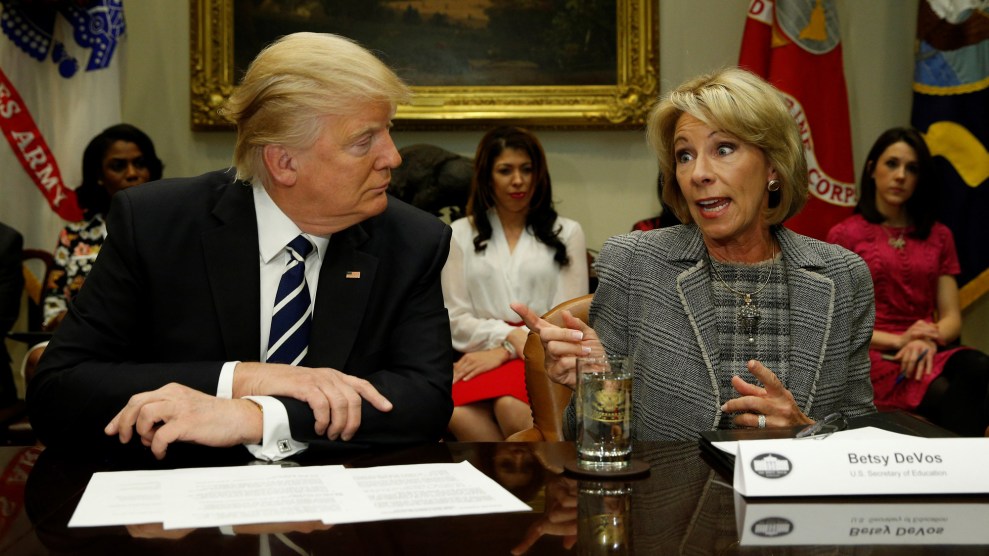
Andy Katz/Pacific Press via ZUMA Wire
The White House is expected to make steep cuts to the Department of Education’s budget in an effort to direct the money toward promoting school choice, the Washington Post reported Wednesday.
According to budget documents obtained by the Post that are expected to be released next week, the administration proposes $10.6 billion in cuts to the education department, including the elimination of at least 22 programs. The proposed budget calls for an investment of $400 million toward expanding charter schools and vouchers for private schools.
It also calls for another $1 billion in Title I funds, originally meant for low-income students, to be used for a new grant program, Furthering Options for Children to Unlock Success (FOCUS), that would encourage school districts to adopt policies that advance school choice. The controversial move, known as “portability,” is meant to allow students to take federal, state, and local dollars to the schools they want to go to—an idea rejected by Democrats as a way to divert public dollars toward private and religious schools.
Special education and Title I spending are expected to remain stable under the administration’s budget, the Post reported. The department proposes using $250 million on “Education Innovation and Research Grants” that would examine the impact of vouchers. The education department’s recent assessment of Washington, DC’s voucher program, the only federally funded one in the country, found that students who received vouchers performed worse academically after a year in private school than those attending public schools.
The administration’s budget also proposes an end to subsidized loans and the public-service loan forgiveness program, as well as cuts to Perkins loans and the federal work-study program. Funding for historically black colleges and universities is expected to hold flat in the administration’s budget proposal, despite calls from HBCU leaders for more money from the administration. Following through on a promise Education Secretary Betsy DeVos made during her controversial commencement speech at Bethune-Cookman University, the administration would also fund year-round Pell Grants, bolstering funds by $16.3 billion over the next decade.
Here’s a rough list of programs that would be cut, according to the Washington Post:
- $1.2 billion for after-school programs
- $15 million for child care for low-income parents in college
- $27 million in arts education
- $65 million for programs for Alaska Native and Native Hawaiian students
- $72 million for international education and foreign language programs
- $12 million for programs for gifted students
- $12 million for educational programs for Special Olympics
- $168 million for grants states use for career and technical education
- $96 million for adult basic literacy instruction
- $13 million for the Obama-era initiative Promise Neighborhoods
- More than 40 positions in the Office for Civil Rights
- More than $700 million in Perkins loans for low-income students
- $490 million for the federal work-study program
- A $1.65 billion fund established by Congress for student support and academic enrichment
The budget proposal would have to make its way through Congress. DeVos is expected to have a chance to defend the administration’s spending priorities before the US House Committee on Appropriations on May 24.
















